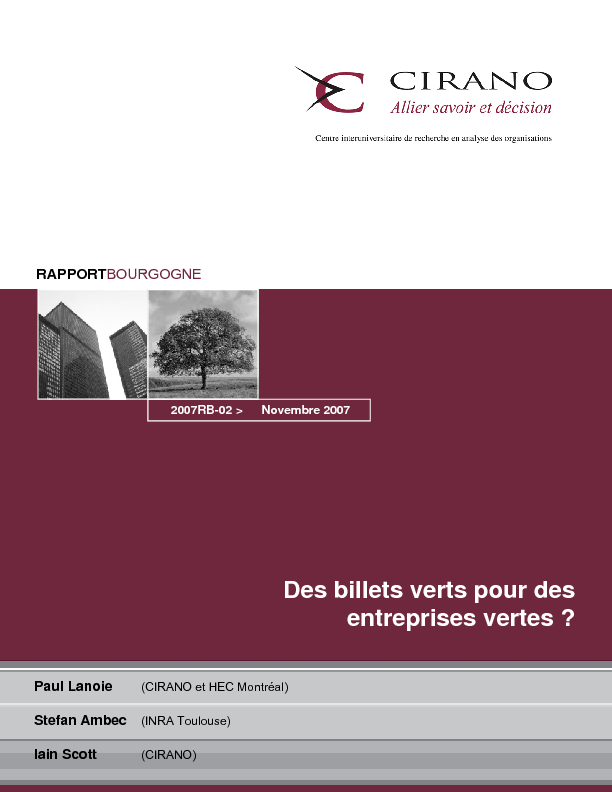Des billets verts pour des entreprises vertes ?
There is a widespread belief that environmental protection is associated with increased costs imposed on businesses by government. Over the past decade, this view has been challenged by a large number of analysts. They have identified many opportunities, conceptually or theoretically, to offset costs with higher benefits for companies' efforts to ensure environmental sustainability.
First, better environmental performance can lead to increased revenues through: (i) better access to certain markets, (ii) the ability to differentiate products and (iii) the ability to sell pollution control technologies. Second, better environmental performance can result in cost reductions in the following categories: (iv) regulatory costs, (v) material, energy and services costs, (vi) capital costs and (vii) labour costs.
The objective of this report is to provide empirical evidence of the existence of these opportunities and to assess their magnitude. For each of the seven possibilities mentioned above, we study the inherent mechanisms and propose a systematic overview of the existing empirical evidence. This report does not seek to demonstrate that pollution reduction is always accompanied by better financial performance; rather, it argues that expenses incurred to reduce pollution can sometimes be partially or fully offset by gains from other sources. Through a systematic review of all options, we aim to identify the circumstances that are most likely to lead to a "win-win" situation - better environmental and financial performance.




